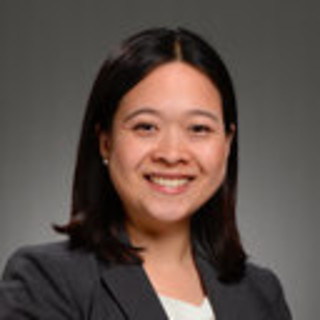 The last year of medical school is infamously known as the “vacation year.” Clinical grades earned during the fourth year do not carry as much weight for residency applications as those from third-year core rotations, so students are able to take it easy. During interview season, applicants attend pre-interview dinners and meet others from all over the country while learning a bit about their future residency programs and fun things to do in the area.
The last year of medical school is infamously known as the “vacation year.” Clinical grades earned during the fourth year do not carry as much weight for residency applications as those from third-year core rotations, so students are able to take it easy. During interview season, applicants attend pre-interview dinners and meet others from all over the country while learning a bit about their future residency programs and fun things to do in the area.
This year, I took advantage of the fact that our school allows its medical students to complete electives abroad for credit. I considered my options: learn medical Spanish in a Latin American country, or in Spain? Learn how the National Health Service (NHS) in the United Kingdom works?
Ultimately, I decided to take an elective at the University of Hong Kong. I completed my four-year undergraduate education in Hong Kong on a full-tuition scholarship and had not seen many of my college friends for at least seven years. I did my research ahead of time, worked with my school to set up a new affiliation with the program, and was accepted to begin a four-week Anesthesiology elective. It was one of the best times of my life — an experience that will last a lifetime.
Why you should go abroad:
- The opportunity to experience a different city, country, and culture: You will be enlightened by learning how the citizens live and work, their values, and their perspectives about your country. (I’ve had many discussions about U.S. politics with the attendings and residents in Hong Kong.) Moreover, you will appreciate many things that you have taken for granted, especially if you are doing an elective in a third-world country. You can also travel to nearby countries if your program allows it (I was able to take a few days off to travel to Taipei and Shenzhen during the weekends).
- The opportunity to learn a language: Immersing yourself in the culture and taking the time to practice speaking the language with locals will earn you respect and appreciation. Plus, you will also learn medical terms that will be extremely helpful if you end up treating patients that speak Spanish, Mandarin, Cantonese, et cetera.
- The opportunity to experience the pros and cons of another healt hcare system: What do citizens abroad think about the American health care system? How do other health care systems work? Through multiple discussions with other physicians, I was able to learn how the NHS and Hong Kong universal health care systems work, along with their benefits and disadvantages. In Hong Kong and the United Kingdom, as in the United States, there is very high demand for primary care physicians, and there are efforts underway to address the shortage. It was also interesting to hear from patients who received treatment in the U.S. and experienced inefficiencies compared to the health care they received in China.
- The opportunity to learn about different diseases, procedures, or medications: You will be exposed to different diseases and pathology that you will not, or will rarely, observe in the U.S. I was able to observe different procedures and technologies that I would not have been able to see in an American program. For instance, target-controlled infusion (TCI) — essentially a machine pump that infuses anesthetics into the patient using a pharmacokinetic model — is not FDA-approved, but is used in at least 96 countries. I learned about numerous other medications, too (e.g., remifentanil, Skudexa etc.).
- The opportunity to make new friends: During my elective, I was lucky to meet another medical student from Scotland and we were able to attend drug conferences together (and even go to Ocean Park on a weekday!). In addition, I was able to meet other friendly, U.K.- or Australian-trained residents and physicians and talk to them about the differences in medical education and health care systems.
- The opportunity to take advantage of, perhaps, the only free time you have before entering the real world: Residency will be a challenging time of your life with many responsibilities. It will likely be difficult for you to schedule a prolonged amount of time to travel or go abroad for an elective.
How you can prepare:
- Research programs of interest during your second or third year: Some programs require you to submit a complete application with letters of reference, transcripts, and board scores. Moreover, they require you to apply at least several months in advance from the date you plan to begin (e.g., the University of Hong Kong requires at least 12 months; other programs require at least six).
- Research cost of living and safety: Discuss safety and cost of living with your school’s global health coordinator. Hong Kong is a very safe city with a low crime rate. Though I did not stay at the hostel that was a five-minute walk from the hospital, it was only 2,800 Hong Kong dollars (357 U.S. dollars) for four weeks.
- Ensure you can get travel and/or medical insurance abroad: Even if your school offers this, you may have to find insurance on your own that the program approves. I purchased mines through the Academic Group.
Traveling is an opportunity to broaden your horizons, to become more educated about the world, and to meet people from all walks of life. Trust me – you will become a better physician and a more interesting person because of it. If you have done an elective abroad yourself, please feel free to share your experience below!
Sarah is a fourth-year medical student at the Frank H. Netter, MD School of Medicine at Quinnipiac University in Connecticut. She will graduate May 2019 and begin Internal Medicine residency in California.
Image by Grinbox/ Shutterstock







